-
•
•
78 responses
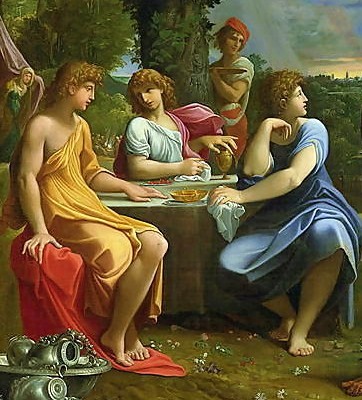
These three concepts exist, for most Mormons, in a tangled web. This has become especially evident in recent months as members have reacted to the Church’s new policies regarding same-sex married couples and their children that were announced in November. This discussion was stoked again following Elder Nelson’s recent remarks, leading to Dave’s post last week pondering: Policy or Revelation? The subtext to this question seems pretty clear: doctrine (often used synonymously with revelation in this discussions) doesn’t change. (For example, the Encyclopedia of Mormonism states that doctrine is “fixed and unchanging.”) And that’s the subtext that dominates all of… Read More
-
•
•
19 responses
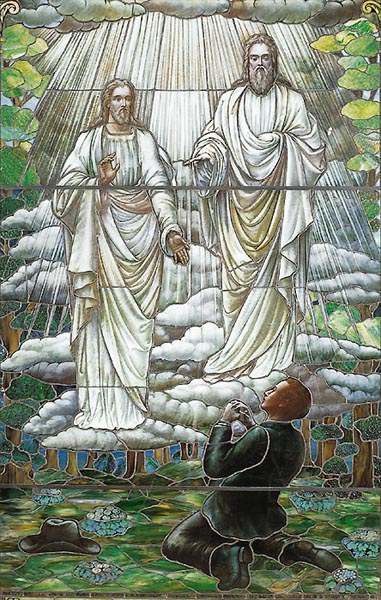
Thank you Nathaniel for your introduction, and thank you to Times & Seasons for the opportunity to share my thoughts and observations with you. A curious paradox of modern Mormonism is how Mormons and non-Mormons frame its heritage. Mormonism appeared in early nineteenth century North America as a new religion amidst a largely Protestant setting. Joseph Smith proclaimed new revelation – the First Vision of 1820; followed by a vibrant stream of additional revelations in the decades that followed; and new scripture – the Book of Mormon – introduced in the visions of Moroni beginning in 1823. All of this… Read More
-
•
•
3 responses
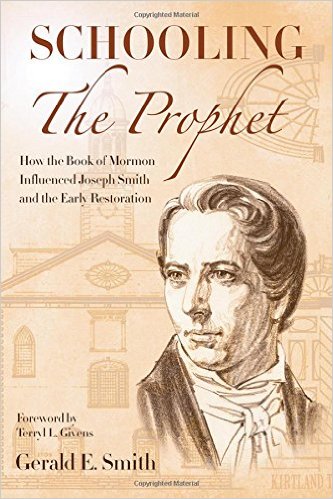
I’m pleased to introduce Dr. Gerald Smith for a round of guest posts here at Times & Seasons. He will be sharing a series of posts about his new book, Schooling the Prophet, How the Book of Mormon Influenced Joseph Smith and the Early Restoration (published by BYU Press and the Maxwell Institute.) I was lucky enough to be an early reader for the project, and was really struck by his unique approach to studying the Book of Mormon and how it had shaped the views and beliefs of Joseph Smith. Outside of Mormon studies, Dr. Smith is a business… Read More
-
•
•
85 responses
Facebook is ablaze with dismay over statements made by Elder Russell M. Nelson in Sunday night’s Worldwide Devotional, titled “Becoming True Millennials.” Initially, when the details of the new provisions were first disclosed and when Elder Christofferson publicly defended them, they were simply portrayed as a policy. Now, many are suggesting Elder Nelson has declared that the policy regarding Mormons in gay marriages and the status of their children (hereinafter, the “New Policy”) is more than a policy, it is a Revelation. The media is now picking up on this: here is a CBS News story titled “Mormon leader says… Read More
-
•
•
16 responses
As commanded, Nephi looks, and what does he see? Interesting that the first thing he sees is cities, including Jerusalem and then Nazareth. What are the other cities? Why does he see cities? This is all in the context of Nephi being guided to come to understand the meaning of the tree. Ultimately Nephi determines it to represent the love of God, which sheddeth itself abroad in the hearts of all God’s children. I wonder, then, if the purpose of seeing the cities was merely to orient Nephi toward the greater context of the meaning of what he sees—this isn’t… Read More
-
•
•
2 responses
Mormons and Modernism: Modernism, Secularism — and the Mormon Response? Thinkers as diverse as Charles Taylor, Marcel Gauchet, John Milbank, Mark Lilla, and Louis Dupré have written about the origins of the modern period—the radical change in thought and society from the medieval period to the modern that occurred gradually and culminated in the sixteenth century. Modernism brought us the renaissance, modern science, the birth of the modern state and democracy, as well as, ultimately, what Nietzsche called “the death of God.” In the twentieth century, questions arose about modernism, such as “How should we understand its grand narratives?” and “What have been its costs to human being?” Recognizing both modernism’s… Read More
-
•
•
23 responses
The first conspicuous element here is the replacement of Lehi’s test or opening—all that time walking in darkness—with Nephi’s being questioned by the angel. Nephi does not walk in darkness—his vision begins, after the opening angelic interchange, with looking directly on the vision of the tree. And this too is different. Lehi’s dream was experiential; Nephi’s vision is observational and propositional. This is huge. Nephi requested to see the things that his father had seen. In response, the angel shows him the tree. It doesn’t start with the field, and the other elements of the vision all come later. There’s… Read More
-
•
•
16 responses
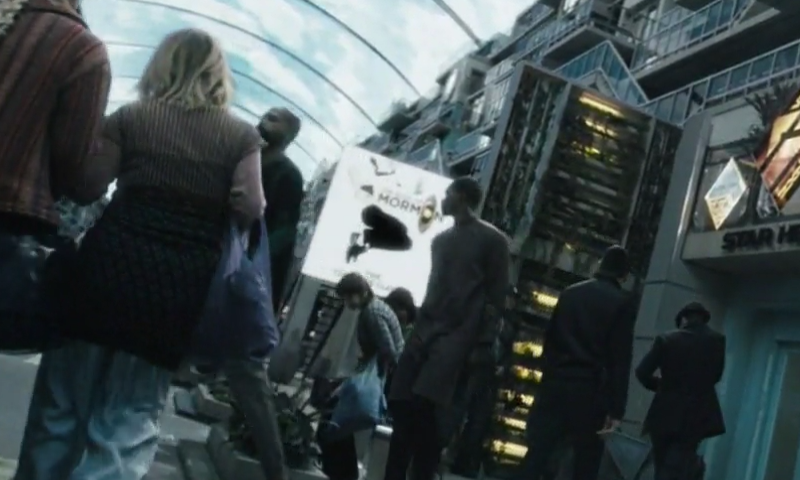
The Expanse is an acclaimed novel series by Daniel Abraham and Ty Franck writing under the pen-name James S. A. Corey. The first novel, Leviathan Wakes, was released in 2011 and nominated for both the Hugo Award for Best Novel and the Locus Award for Best Science Fiction Novel. Abraham and Franck have released a book a year since then, with Caliban’s War in 2012, Abaddon’s Gate in 2013, Cibola Burn in 2014, and Nemesis Games in 2015. Babylon’s Ashes is slated for June 2016, and three more untitled sequels are scheduled for 2017-2019. The SyFy channel, in an attempt to… Read More
-
•
•
9 responses
I’ll confess, I feel a mixture of serious disappointment and jealousy as I’m struck by the utterly exotic nature of this event. Note not only the coming of the angel, but that the angel does not come to Nephi for specific reasons of instruction or witness—not like the shepherds abiding in their fields or Joseph Smith praying for forgiveness. Here the angel comes to simply ask: “What do you desire?” Now admittedly, this appears to be a sort of test—all right Nephi, let’s see what you ask for, and then we’ll see what you get. And Nephi apparently chooses wisely,… Read More
-
•
•
10 responses
I recently read Alan Spence’s Christology: A Guide for the Perplexed, a short but very helpful discussion of the topic. I’m going to use it to reflect a bit on Mormon Christology, particularly as it relates to modern Christological commentary on and criticism of the doctrines that emerged from theological debates in the early Church. First, let’s define the problem. Read More
-
•
•
Nephi does it again right at the start of this passage, though this time it’s in reverse: he talks about faith in the Son of God, and then realizing that his reader would need clarification on that, he inserts the parenthetical about the Son of God being the Messiah of whom Lehi had been prophesying earlier in the chapter. The whole passage here is interesting in terms of its being a small bit of autobiography leveraged to preach a sermon at us. Nephi relays his experience to us in order to explicitly teach us and convince us that we can… Read More
-
•
•
3 responses
At the end of this section Nephi notes that there were many other prophecies of Lehi, and many of those prophecies Nephi wrote in his other plates. Here he’s only written what he thought appropriate. Well then, what has he written? Out of many prophecies, what does Nephi consider worth including? Two main things. First, he’s copied over Lehi’s messianism and re-interpreted that messianism for his reader. Second he’s laid a foundation for one of the major themes of the entire Book of Mormon: this notion of scattering and gathering, which he’ll take back up when relaying his own vision… Read More
-
•
•
27 responses
The first lines go right along with the confusion and different worldview conspicuous in 9. Having just stated the Lord’s intention for Nephi to focus on the spiritual as opposed to the secular and his own confusion over this point, Nephi launches in to tell us about his journey, his reign, and his ministry. It’s all the same to him. It’s all the workings of God. And I Nephi through the first part of II Nephi is in fact about showing that God was behind Nephi’s reign. I wonder what’s behind this notion of a “land of inheritance.” It’s a… Read More
-
•
•
115 responses

John Gustav-Wrathall is the newly-elected president of Affirmation: LGBT Mormons, Families & Friends, an international organization founded in 1977 to support LGBTQ/SSA Mormons and their families, friends and Church leaders. Following his election, I invited Gustav-Wrathall, a personal friend, to draft a post on his thoughts about the new policy, his interactions with Church leaders, and what he thought important that members know. The post below is the product of that invitation. For those who don’t know him, Gustav-Wrathall is an adjunct professor of American Religious History at the United Theological Seminary of the Twin Cities, where he teaches future Protestant ministers about… Read More
-
•
•
40 responses
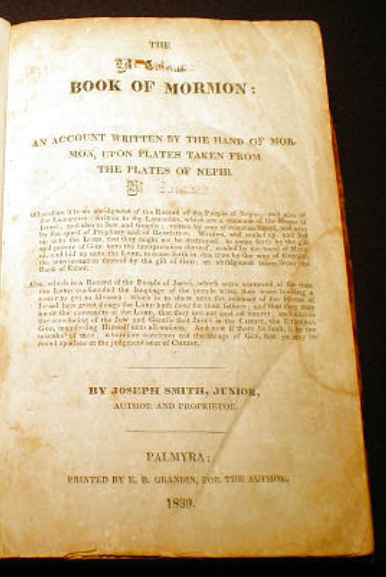
As with the Old and New Testaments, here are my suggestions for this year’s study of the Book of Mormon. (Edit for newcomers: Who am I and why do my suggestions have any merit?) Read More
-
•
•
8 responses
This is an extraordinarily odd chapter—and odd in ways that really do support the either prophet or genius narrative of Joseph Smith. Why, if one were simply trying to cover up their mistake in losing 116 pages and the first several hundred years of history, would you stick this chapter in here? You go ahead and finish translating from Mosiah through Moroni. Then, since your narrative is screwed up, you plan out this clever narrative of there being “other” plates—the Small Plates of Nephi—tacked on at the end of the gold plates—you use this ad hoc addition of these other… Read More
-
•
•
14 responses
-
•
•
One response
The folks who make it to the tree via the path-rod fall down. Its exhausting. This seems so significant, and seems to confirm my earlier reading of the path-rod as not the optimal means of getting to the tree; we ought not kid ourselves about the cost of this route. Likewise, there seems to be a significant contrast between the difficulties of the path-rod and the difficulties making the tree via revelation. It’s a difficult journey no matter how one gets there—but Nephi’s gloss here highlights the danger of exalting the path-rod, or mistaking mere means as ends. Overall we’re… Read More
-
•
•
7 responses
Just before Christmas in 1522, an illiterate laborer from Strasbourg named Lienhard Jost lay in his bed at night and prayed. He had literally felt the ground shifting under his feet when an earthquake had struck while he was cutting wood in the forest that day, but he was even more unsettled by the ongoing religious controversies and by rumors that the world would be destroyed by a second Deluge in little more than a year. Read More
-
•
•
42 responses
Julie Smith wrote a stimulating post last week, “A Rhetoric of Indirection,” in which she argues that the Church is undergoing a counterproductive cultural shift in homiletic emphasis from personal discipleship to strong nuclear families. When she joined the church in the 90s, she writes, “there was a focus on individual righteousness–personal scripture study, prayer, personal worthiness, temple attendance, etc. Now when I hear those things, they are usually couched in or around The Family.” While official discourse did address families 25 years ago, she concedes, it was a secondary concern rather than a direct focus. She concludes by lamenting… Read More
-
•
•
4 responses
Why didn’t Lehi and his family ever see or need the rod of iron or the path when they journeyed to the tree? And by contrast, why did so many of those who sought after and obtained the path & rod, then fall away? Reading closely, it is only those who relied on the rod to get through the mists of darkness that are specifically noted to have fallen away (of course, at least some of those who failed to use the rod were lost—a bit of a catch 22). And how could folks fall away simply because of the… Read More
-
•
•
28 responses
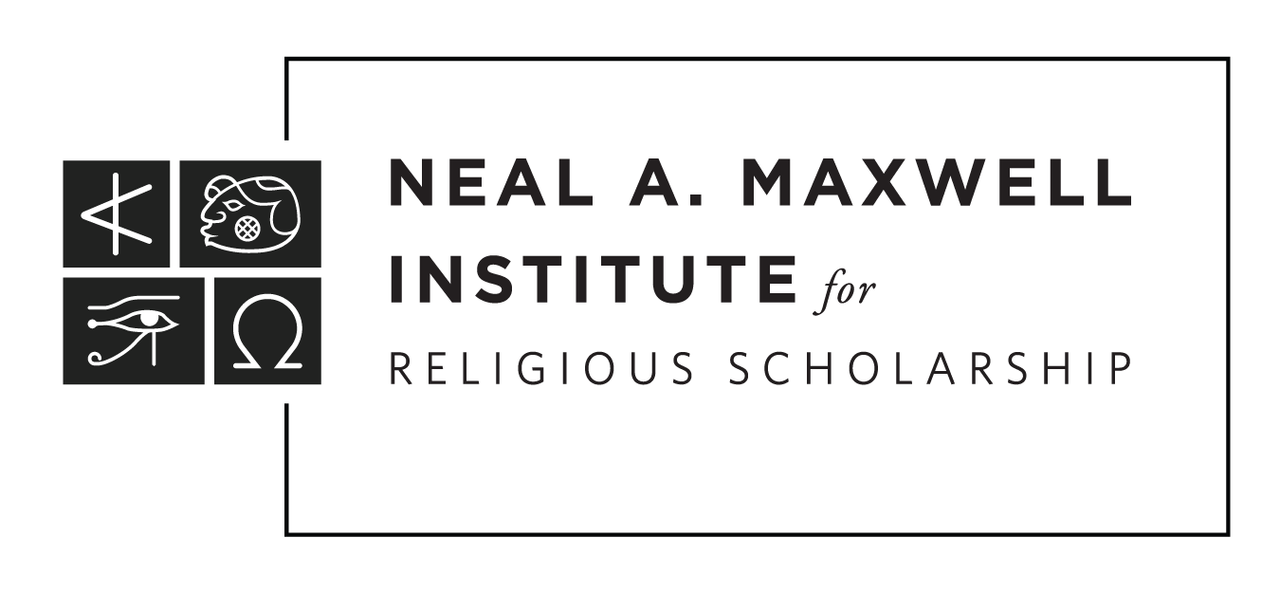
“For it shall come to pass in that day, that every man shall hear the fullness of the gospel in his own tongue, and in his own language.” D&C 90:11 Introduction This post begins with a simple question: does the Maxwell Institute (formerly FARMS) publish scholarship that treats the Book of Mormon as an ancient text? Or, in the words of Bill Hamblin, has the new leadership at MI “undermin[ed] ancient Book of Mormon studies” in favor of “modern Mormon Studies in its broadest sense” to the point where the Maxwell Institute today is “Sunstone South”? It’s a sensitive question,… Read More
-
•
•
42 responses
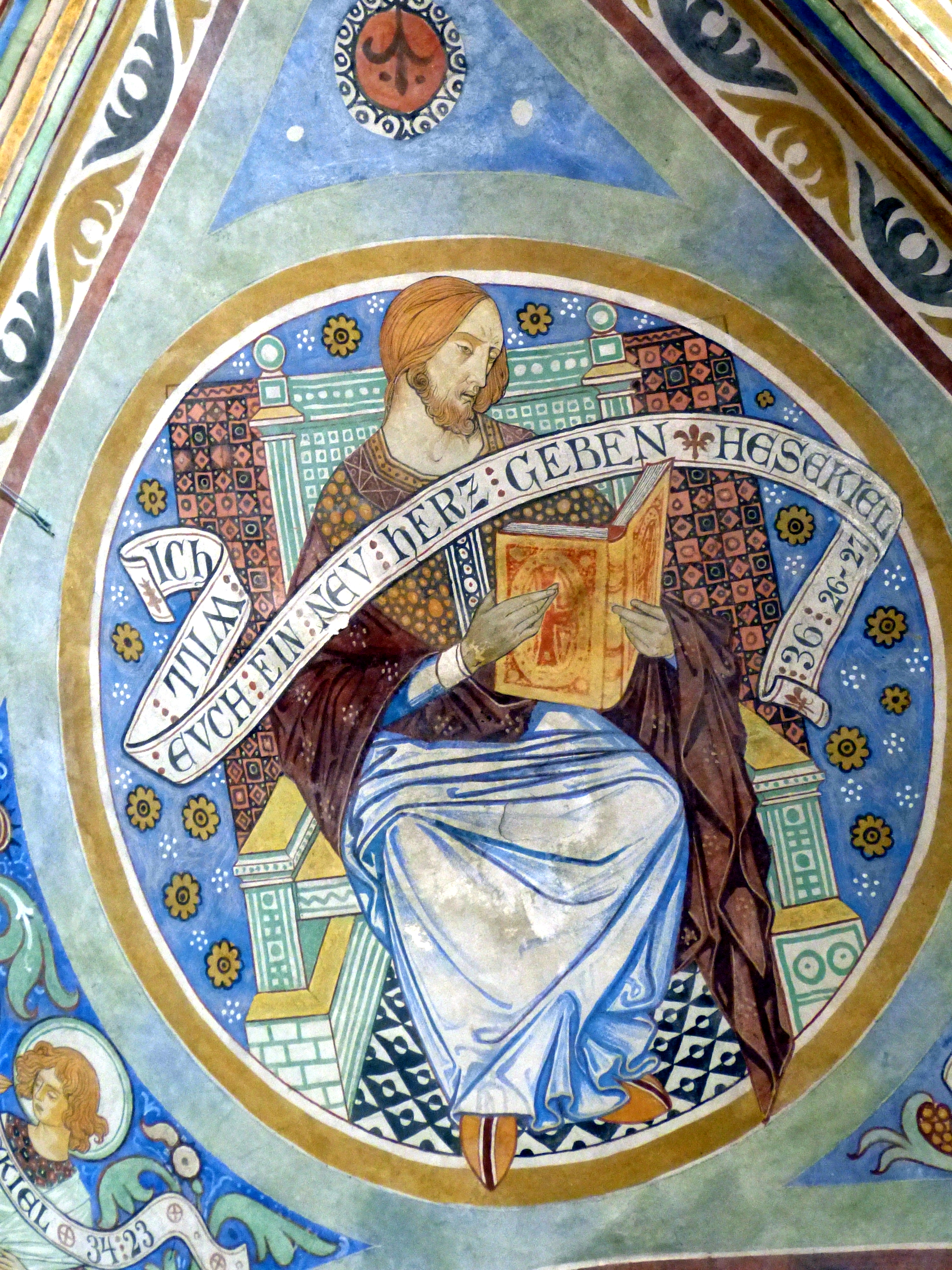
Ezekiel delivered the longest single prophecy, the longest single allegory, in the Bible in what is now Ezekiel 16. His theme is that Jerusalem has acted like a prostitute. He presses his case for 63 verses! Read More
-
•
•
3 responses
There are patterns here in the partaking of the fruit: self, then family, then others; self, then the righteous, then the wicked; self, then one’s people, then others. Enos later repeats this pattern in his great prayer. I don’t think this pattern lends credence to an egoistic (or even a growing enlightened self-interest) interpretation, however; quite the opposite. The first fruits of enlightenment seem to be to recognize that I am not a mere individual, that my own salvation is never enough. When pursuing righteousness, we seem to be made ever more aware of the centrality of others who at… Read More
-
•
•
83 responses

I remember watching the Olympics when I was in high school and concluding that the swimmers had the best-looking bodies of all of the athletes. Not scarily gaunt like the runners, not comically and grotesquely bulging like the weight lifters, not the stunted look of the gymnasts. Read More
-
•
•
How did Lehi know that the fruit was desirable to make one happy? Usually in dreams we just know things; we know the context or the background that makes the dream sensible. Is that what it was? What about in life? Why do some of us simply know how to be happy and others don’t? Why are some of us intuitively drawn to the “things of God” while others aren’t? Why do some react to the great theophanic events in the way that Nephi did and others react like Laman and Lemuel? Nephi makes it out to be a choice,… Read More
-
•
•
14 responses
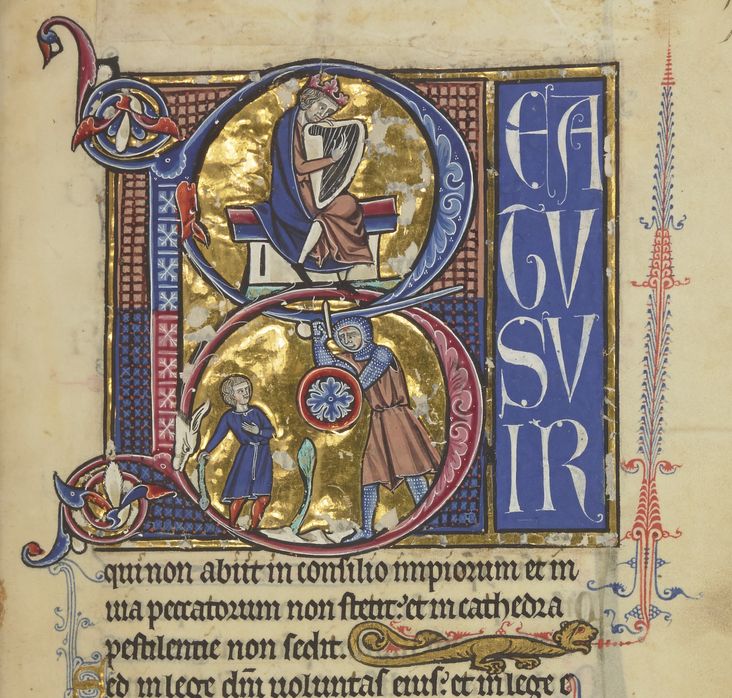
Throughout the middle ages, the popularity of the Book of Psalms caused it to be reproduced in Latin as a separate volume of devotional literature called the Psalter. In medieval manuscripts, the opening phrase of Psalm 1, “Beatus vir,” was often richly decorated, as in this example from the thirteenth-century. The Latin Beatus is related to the modern English words beatific and beatitude and translates as happy or blessed. Vir is the Latin word for man with variations persisting in modern language: virile, virtue, and virtuoso. The King James Version of the Psalms (which did not exist yet in the… Read More
-
•
•
I’m passing this along from MSH President Jenny Webb: Read More
-
•
•
3 responses
Verse 1: it seems clear that they lived in the Valley for quite some time. Lehi’s dream. This labyrinth makes the whole book worthwhile. I too have had dreams that make me deeply question the future and my relationships, that do not simply manifest but engender worry and joy. But here we see a dream that not only spawns reflection in the dreamer, but gives future credence to Nephi’s narrative and theocratic reign, shapes a people, is buried for fourteen hundred years, comes to light, and once again shapes another people. This dream is as iconic as anything in Mormonism.… Read More
